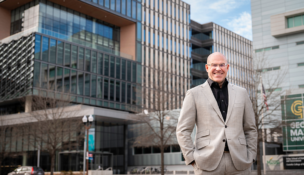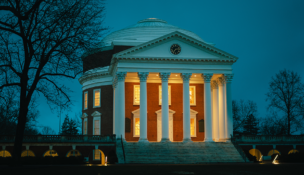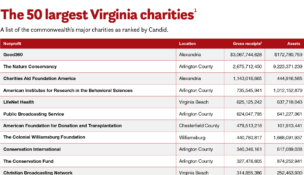GMU president’s lawyer calls DOE findings ‘legal fiction’
Legal counsel is former Maryland state AG
Kate Andrews //August 25, 2025//

George Mason President Gregory Washington. Photo courtesy George Mason University

George Mason President Gregory Washington. Photo courtesy George Mason University
GMU president’s lawyer calls DOE findings ‘legal fiction’
Legal counsel is former Maryland state AG
Kate Andrews //August 25, 2025//
SUMMARY:
- Attorney representing GMU’s president says U.S. Department of Education findings part of an “incomplete” process
- Former Maryland attorney general serving as President Gregory Washington’s counsel
- DOE says it requires an apology from Washington, among other measures, to settle civil rights violations
George Mason University President Gregory Washington’s attorney called a federal investigation that found GMU in violation of civil rights law “legal fiction” and advised that Washington should not apologize, according to a letter sent Monday to the Fairfax university’s board.
Douglas F. Gansler, Maryland’s former state attorney general and now a partner at the Cadwalader law firm’s Washington, D.C., office, issued an 11-page letter to George Mason’s board of visitors, following the U.S. Department of Education’s finding that the university violated Title VI of the Civil Rights Act of 1964 by “illegally using race and other immutable characteristics in university practices and policies, including hiring and promotion.” The Education Department cited Washington’s policies as biased toward people of color and discriminatory against white employees.
The DOE gave the university 10 days to voluntarily settle, with Washington required to make a full statement “to all university students and employees that GMU will conduct all recruitment, hiring, promotion and tenure decisions in compliance with Title VI, and disseminate information to the campus community explaining how to submit a discrimination complaint.” The statement must also include a personal apology by the president.
Gansler, who served as Maryland’s attorney general from 2007 to 2015, wrote that the DOE Office of Civil Rights‘ “investigation process has been cut short, and ‘findings’ have been made in spite of a very incomplete fact-finding process, including only two interviews with university academic deans.” Further, Gansler says, the office’s letter “contains gross mischaracterizations of statements made by Dr. Washington and outright omissions related to the two-plus-year DEI review process that the board of visitors and Dr. Washington engaged in.”
He adds that, “per OCR’s own findings, no job applicant has been discriminated against by GMU. … Therefore, it is a legal fiction for OCR to even assert or claim that there has been a Title VI or Title IX violation here.”
Gansler also says that the DOE’s resolution agreement, and “in particular its demand that Dr. Washington apologize to the Mason community for promoting unlawful discriminatory hiring practices, would be falsely admitting to conduct that did not occur and would open GMU to further legal risk in concurrent and future investigations by other agencies.”
That’s particularly relevant because the university is currently the target of three other federal investigations, including two by the U.S. Department of Justice’s civil rights division, over similar issues regarding what the Trump administration argues is illegal DEI policy — although Washington and his allies say they have not violated federal civil rights law.
In his letter, Gansler takes the DOE’s charges one by one, arguing that Washington was not advocating that faculty should be hired on the basis of race and that the Office of Civil Rights “selectively excerpted” Washington’s statement to make it appear he had. The attorney also argued that Washington himself is rarely involved in the hiring of faculty, which is mostly handled at the school level, and that Washington was never interviewed by the Office of Civil Rights during its investigation, which was launched July 10 and ended after just more than a month.
Gansler concludes the letter by requesting that he be included in any discussion by the board “over how to respond to OCR’s demands.”
The university board, which has hiring and firing power over Washington, has been critical of Washington’s DEI policies, some of which were enacted in the months after George Floyd’s murder and nationwide racial justice protests. Washington and his supporters, including Gansler, have emphasized the fact that Virginia’s then-governor, Ralph Northam, directed state agencies and universities to focus on diversity, equity and inclusion programs that allowed disenfranchised people more opportunity to compete for state contracts and jobs.
However, in the past few years, there has been serious backlash against DEI, including by Gov. Glenn Youngkin, who appointed all of George Mason’s current board members, and President Donald Trump. Critics of the Trump administration have claimed the DOJ and DOE are using their powers to twist the meaning of the federal Civil Rights Act — initially enacted to prohibit anti-Black discrimination in the 1960s — to punish universities and drive out presidents with whom the administration disagrees.
In July, University of Virginia President Jim Ryan departed under pressure from the Trump administration, and George Mason supporters have said the same pattern is occurring with Washington.
g

















